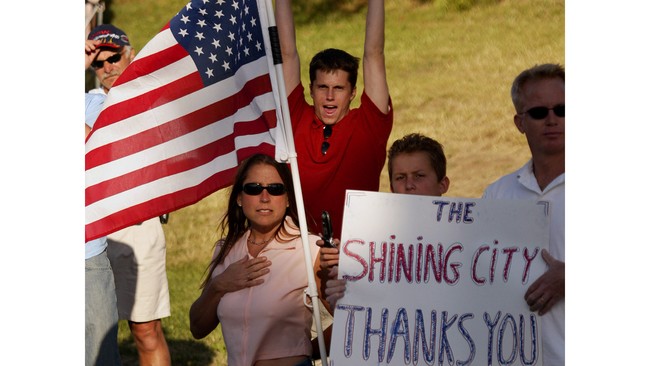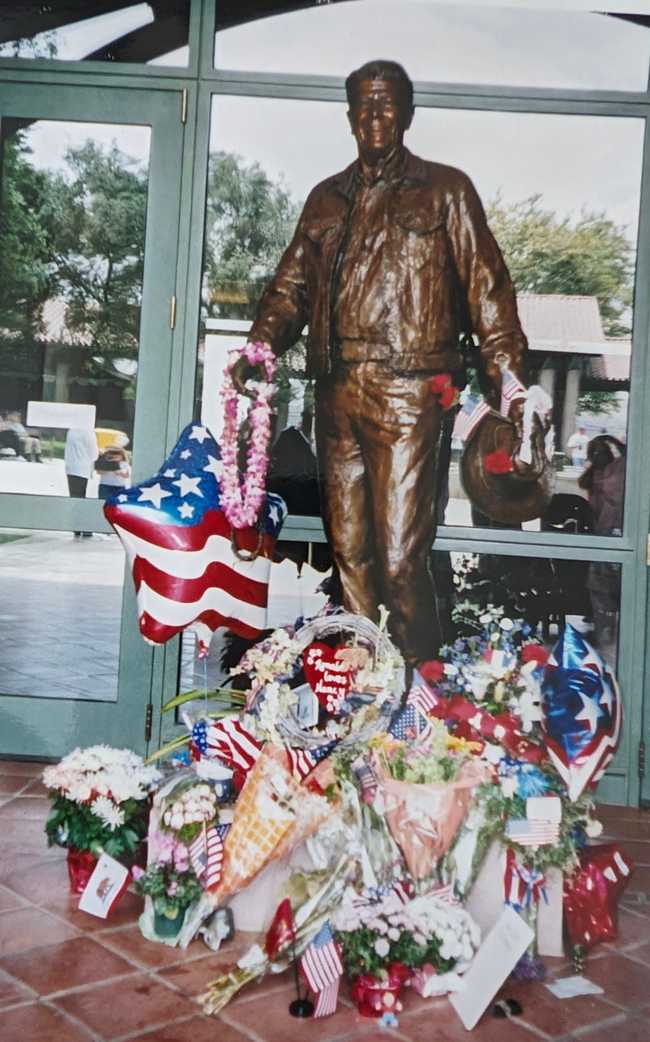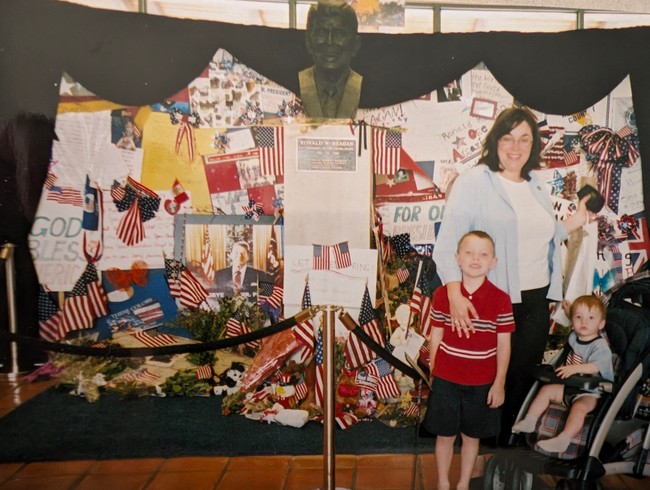Nearly 20 years ago, on June 5, 2004, we lost President Ronald Reagan. He’d retired from public life years before after announcing his Alzheimer’s diagnosis in an emotional and incredibly inspiring letter to the nation, but the outpouring of love and grief upon the news of his death showed that he still held a place in America’s heart.
Advertisement

There’s no doubt that both Reagan and his policies as President of the United States (particularly ending the Cold War) have greatly influenced the world and shaped history. How has his presidency influenced America and the world in the 20 years since he’s been gone, and how will it continue to shape America and the world? That’s the question that will be discussed during an upcoming event at the Ronald Reagan Presidential Library in Simi Valley, California, on the anniversary of Reagan’s death.
RELATED: A Personal Farewell to Mikhail Gorbachev
Reagan continues to be revered by Republicans and conservatives but in the past year or so, some pundits have misstated his positions and actions in an effort to convince people that Reagan doesn’t deserve the admiration or respect he receives. While that’s to be expected since he’s now been gone long enough (whether from the presidency or from the public eye) that there are generations of Americans who either were too young to remember Reagan’s presidency or weren’t yet born, it’s still frustrating to observe. The Reagan Library event, featuring quite a few Reagan administration alums, is the perfect opportunity for the public to hear more about Reagan’s policies and achievements for themselves.
Advertisement

A panel entitled “Morning in America,” with panelists Andy Card, Art Laffer, and Stephen Moore, will focus on Reagan’s domestic agenda, while the “Peace Through Strength” panel (moderated by Townhall Media’s own Guy Benson), featuring K.T. McFarland, Ken Adelman, Amb. Paula Dobriansky, and Dr. William Inboden, will focus on Reagan’s leadership abroad.
The discussion I’d most like to see, though, will be between Carol Thatcher and Ben Mulroney, and moderated by Peggy Noonan. For those who weren’t alive in the 1980s, Thatcher is the daughter of former British Prime Minister Margaret Thatcher, and Mulroney is the son of former Canadian Prime Minister Brian Mulroney. While Thatcher and Reagan’s friendship and political alliance has been given much more attention than the friendship between Reagan and Mulroney, the trio define anti-big-government conservatism.
As a nerdy California girl who grew up obsessed with politics and international relations in the 1980s, Ronald Reagan was my political hero – and more than a few times I wished he was my grandfather. His calm confidence and steel resolve was reassuring, and I don’t believe I’ve ever seen an interaction he had with another world leader or a political opponent or a journalist where he wasn’t able to completely handle the situation. He suffered no fools, but in a kind way. So when I happened to visit my hometown of Simi Valley a few weeks after Reagan’s burial at the Library, I had to bring my sons with me to pay respects to this giant of a man.
Advertisement

That there were still so many flowers, flags, posters, and cards at the Library weeks later was overwhelming, but reassuring.
Two of the qualities I admired most about President Reagan were his optimism and determination, which were on full display as he fought “aggressive Soviet communism” throughout both of his terms. Reagan recollected that fight during his speech at the 1992 Republican National Convention:
It wasn’t so long ago that the world was a far more dangerous place as well. It was a world where aggressive Soviet communism was on the rise and American strength was in decline. It was a world where our children came of age under the threat of nuclear holocaust. It was a world where our leaders told us that standing up to aggressors was dangerous — that American might and determination were somehow obstacles to peace.
But we stood tall and proclaimed that communism was destined for the ash heap of history. We never heard so much ridicule from our liberal friends. The only thing that got them more upset was two simple words: “Evil Empire.”
In that speech, given two years before his Alzheimer’s diagnosis, Reagan spoke about what he hoped history may say about him after he was gone.
My fellow citizens — those of you here in this hall and those of you at home — I want you to know that I have always had the highest respect for you, for your common sense and intelligence and for your decency. I have always believed in you and in what you could accomplish for yourselves and for others.
And whatever else history may say about me when I’m gone, I hope it will record that I appealed to your best hopes, not your worst fears, to your confidence rather than your doubts. My dream is that you will travel the road ahead with liberty’s lamp guiding your steps and opportunity’s arm steadying your way.
My fondest hope for each one of you — and especially for the young people here — is that you will love your country, not for her power or wealth, but for her selflessness and her idealism. May each of you have the heart to conceive, the understanding to direct, and the hand to execute works that will make the world a little better for your having been here.
May all of you as Americans never forget your heroic origins, never fail to seek divine guidance, and never lose your natural, God-given optimism.
And finally, my fellow Americans, may every dawn be a great new beginning for America and every evening bring us closer to that shining city upon a hill.
Advertisement
Judging by the tears I see in the eyes of visitors every time I watch that video at the end of the Reagan Library tour, what President Reagan hoped for has come to pass.
(EDITOR’S NOTE: Tickets to the “Honoring the Life and Legacy of Ronald Reagan” event at the Reagan Library can be purchased here through Wednesday, May 29. The event will also be livestreamed on the Library’s YouTube channel, and RedState editor Bob Hoge will be reporting from the Library.)